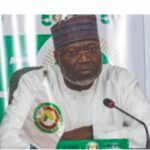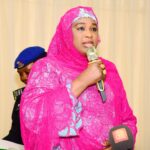Re- ” The Black Sheep in ECOWAS ‘– Challenges and the Path Forward
By Raymond Enoch
The Economic Community of West African States (ECOWAS) is at a critical juncture as it navigates political instability, governance challenges, and regional realignments. While the bloc has long been a pillar of economic cooperation and democratic governance, recent developments have tested its ability to maintain regional unity.
The withdrawal of Mali, Burkina Faso, and Niger from ECOWAS on January 29, 2025, and the formation of the Alliance of Sahel States (AES) have reshaped the regional political landscape. At the same time, countries like Guinea, Côte d’Ivoire, The Gambia, Guinea-Bissau, and Togo face growing governance concerns. These developments raise the question: What is ECOWAS’s role in preserving regional stability, and how can it adapt to these challenges?
ECOWAS and the AES: A Shifting Regional Order
The exit of Mali, Burkina Faso, and Niger from ECOWAS has sparked intense debate about the future of regional integration. While the move reflects their frustration over ECOWAS sanctions following military coups, it does not signify a total break.
ECOWAS has:
• Extended a six-month grace period for dialogue and possible reconciliation with the AES countries.
• Kept regional integration pathways open, ensuring trade and mobility remain operational despite political tensions.
• Maintained diplomatic engagement, appointing high-level mediators to keep communication channels active.
While challenges persist, it is crucial to frame ECOWAS as a stabilizing force that continues to seek common ground, rather than a bloc losing relevance.
Governance Challenges Across Member States
Beyond the AES withdrawal, political tensions are rising in several ECOWAS Member States, with governance concerns surfacing ahead of key elections and constitutional changes.
• Côte d’Ivoire: With presidential elections set for October 2025, President Alassane Ouattara’s potential bid for re-election raises concerns about tenure elongation, a trend that has fueled instability in West Africa.
• The Gambia: President Adama Barrow’s administration continues under the 1997 constitution, with stalled reforms and political maneuvering ahead of the 2026 elections.
• Togo: Recent constitutional changes in 2024 have shifted the country to a parliamentary system, consolidating power under President Faure Gnassingbé’s ruling party.
• Guinea-Bissau: With President Umaro Sissoco Embaló’s term ending in February 2025, the lack of a functioning parliament, electoral commission, or Supreme Court raises concerns about democratic continuity.
ECOWAS has been criticized for inconsistencies in addressing these governance challenges. However, under Dr. Omar Alieu Touray’s leadership, efforts are being made to:
• Strengthen electoral transparency through governance reforms.
• Engage in political mediation to ensure smooth democratic transitions.
• Promote constitutional adherence across all Member States.
The ECOWAS of today cannot afford a passive approach—it must evolve to continue to tackle governance inconsistencies while maintaining its legitimacy as a regional authority and institution.
Security and Stability: ECOWAS’s Proactive Response
West Africa remains a hotspot for security threats, from insurgencies to cross-border conflicts. ECOWAS has responded with key strategic actions:
• Activated the ECOWAS Standby Force (ESF) as a deterrent against unconstitutional takeovers.
• Increased counterterrorism cooperation with regional and international actors.
• Launched new peacekeeping initiatives, particularly in the Sahel region.
ECOWAS’s security role should not be overlooked. While the AES seeks alternative partnerships, ECOWAS remains the most structured force for regional stability.
ECOWAS at 50: The Road Ahead
As ECOWAS marks its 50th anniversary in May 2025, the bloc faces a moment of reflection. It must:
• Adapt its institutional mechanisms to address emerging governance challenges.
• Maintain diplomatic efforts with the AES, keeping regional dialogue open.
• Continue strengthening its security role, ensuring it remains the primary stabilizing force in West Africa.
While criticisms persist, ECOWAS remains an indispensable Regional Economic institution. The path forward requires firm and bold reforms, diplomatic agility, and a renewed commitment to transforming ECOWAS from an “ECOWAS of States” to an “ECOWAS of People.” which anchored people as center stage of its existence.









